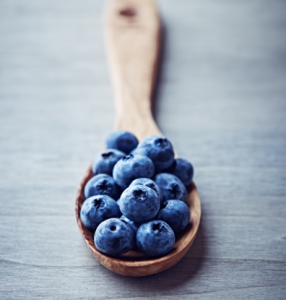Wild blueberries could boost primary school children’s memory and concentration
Consuming wild blueberries¹ may have a significant effect on the cognitive ability of primary schoolchildren, new University of Reading research has found.
The study, the first of its kind, saw a group of 21 children aged 7 to 10 given a drink² containing either a high dose of wild blueberry (about 1.75 cups); a low dose ( ¾ cup); or a placebo. They were given a series of cognitive tests examining memory and attention before consumption of the drink and then at 1h 15mins, 3 and 6 hours later.
The results suggest wild blueberries could strengthen the performance of primary schoolchildren in class. In one test the children were presented with a list of 15 words to recall 1hr 15mins following consumption of the drink. Compared to their performance before they were given the drink, on average the children remembered one more word after drinking the high dose beverage compared to when they drank the placebo.
The delayed recognition test saw the children trying to identify the 15 words from a list of 50 words approximately 20-25 minutes after hearing them for the last time. Following both the high and low dose drinks, the children recognised approximately one word more during the 1hr 15mins and 3hr test sessions, and two words more during the 6hr test session than when they took the placebo.
Improved performance on a further task where the children were required to ignore distracting stimuli indicated that concentration levels in the wild blueberry rich groups also increased.
Professor Claire Williams, from the University of Reading’s School of Psychology & Clinical Language Sciences, led the study. She said: “Wild blueberries are rich in flavonoids, compounds found naturally in foods such as fruits and their juices, vegetables and tea. They have been associated with a range of health benefits including antioxidant and anti-inflammatory effects. The primary class of flavonoids present in wild blueberries is anthocyanins.
“We have known for some time that flavonoids promote healthy brain function in adults. However, this is the first, fully controlled, double-blinded research study to examine the effects of flavonoids on cognitive behavior in children.”
On the same day each week, over a three week period, the children consumed one of the drinks. Following each serving they were then asked to perform four tasks that tested attention and memory at different time intervals throughout the day. Prior to and during the test day the children eliminated flavonoids from their diets for a 24-hour period.
Professor Williams added: “The composite scores for all the tasks highlighted a significant difference in the children’s cognition results, with the strong drink leading to the best performance and the placebo the least effect performance. Primary school is a vital stage in a child’s educational and social development. These results indicate strongly that consuming foods rich in flavonoids, such as wild blueberries, could aid overall learning in the classroom.”
As a result of these initial findings, Prof. Williams and her team will undertake new studies to investigate the effects of wild blueberries on reading development, and also to see whether children diagnosed with ADHD may benefit.
Previous Reading research has shown that consuming regular blueberries, as well as other flavonoid rich drinks such as orange juice, can also improve memory and concentration. Research is still ongoing to determine the exact mechanisms by which flavonoids may exert benefits to the brain. Several mechanisms have been proposed such as improved blood flow in the brain and protecting neurons against oxidative damage and increasing the efficiency with which neurons transmit signals.
Cognitive Effects Following Acute Wild Blueberry Supplementation on 7 – 10 Year Old Children was published in European Journal of Nutrition.
Photo: www.shutterstock.com
10/07/2015
Source: University of Reading






